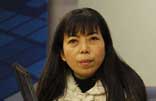Affirmative action is more divisive than beneficial
Updated: 2011-12-10 08:06
By Berlin Fang (China Daily)
|
|||||||||||
Contrary to some misconception that policies favorable to racial or ethnic minority groups in the United States help them excel in different fields and lead a better and prosperous life, they could actually be doing just the opposite.
The idea behind propagating such policies may be noble and philanthropic, but the results are not necessarily what they should ideally be.
Differentiated treatments reinforce, often to a fault, awareness about ethnic differences when inclusion would have been a better choice.
Interventions to increased ethnic awareness have played a significant role in the problems faced by many countries, including the US.
Education is one of the most conspicuous strongholds of such preferential treatment. This year marked the 50th anniversary of "affirmative action", an executive order signed by former US president John F. Kennedy in 1961. Affirmative action makes it easier for some historically discriminated races or ethnic groups to enter college to receive better education. Fifty years later, the presumably well-intentioned policy is giving rise to concerns of inequality and reverse discrimination against members of majority groups.
In Oklahoma, where I live now, there is talk about abolishing the affirmative action from the public sector. Some states, such as California, have already started eliminating the race criteria in college applications. The "melting pot" that is the United States of America does not need racial quotas to produce athletes, business executives or presidential candidates for either party. Then why would colleges and universities require racial or ethnic quotas in their admission?
I do not see how it can help any group in the long run. Philosophically, there is something wrong with the underlying assumption for such policies. All things being equal, every ethnic group should be equally capable of producing top talents without having to be given shortcuts. Unless educational resources have been significantly reduced or withdrawn for certain groups before college entrance exams, preferential treatment for any group should not be warranted.
Moreover, the policy is starting to go against the historical justification for its very existence. Instead of helping redress historical wrongs, the policy is creating new wrongs for the current and future generations.
In the US, qualified white applicants who were denied admission have filed lawsuits. For instance, Jennifer Gratz and Patrick Hamacher filed a lawsuit against the University of Michigan for its 150-point rating system, which automatically gave 20 points to any applicant from any under-represented ethnic group. The system was judged to be unconstitutional by the US Supreme Court.
Affirmative action is also subject to arbitrary definitions of "minority", for it is based on the volume of voices instead of real demographic data. Asian students in the US, for instance, suffer the most because of the affirmative action. Instead of benefiting from the affirmative action that is supposed to help the minorities, Asian students, representing 6 percent of the US population, are held to unreasonable standards, needing scores "hundreds of points higher than applicants from other ethnic groups to have an equal chance of admission " (Jesse Washington, Associated Press, Dec 3, 2011).
Many students, whose one parent is non-Asian, choose not to write (or tick) "Asian" in their admission form. How is this supposed to be fair? How can such policies help any society if two principles - meritocracy and equality - have to be sacrificed to sustain a policy that is outdated anyway?
I really hope the US government would consider reforming policies that give particular ethnic groups an unfair advantage. Every student deserves to get an equal opportunity to access higher education. True competitiveness comes to a country, I think, when diversity works in conjunction with equality.
The author is a US-based instructional designer, literary translator and columnist writing on cross-cultural issues.
(China Daily 12/10/2011 page5)




